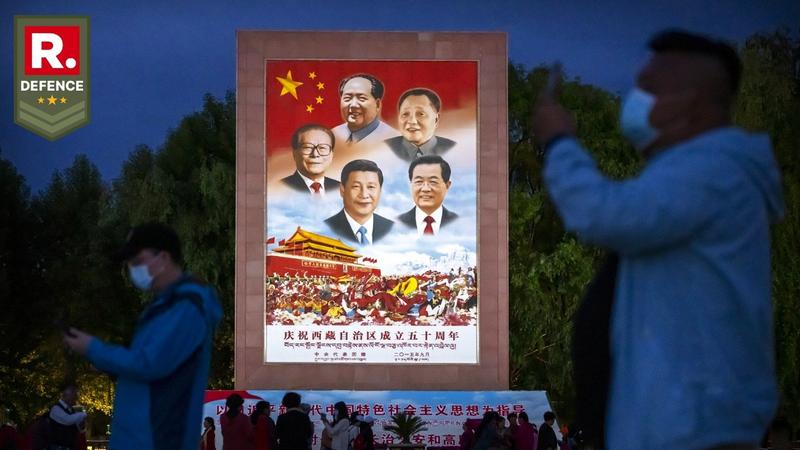Published 20:11 IST, January 7th 2025
Beijing Implements New Restrictions Targeting Tibetan Education and Cultural Practices
Tibetan children face heightened restrictions this winter as Chinese authorities impose strict measures to undermine Tibetan language and cultural identity.

Beijing, China - As Tibetan schoolchildren prepare for their winter vacation, Chinese authorities have unveiled stringent measures aimed at further eroding the use of the Tibetan language and culture. Beginning December 30, 2024, these restrictions, which span the Tibet Autonomous Region (TAR) and Tibetan-inhabited areas of Sichuan, Qinghai, and Gansu provinces, prohibit Tibetan students from receiving private Tibetan-language tutoring. Instead, children are mandated to participate in Mandarin Chinese instruction and state-approved political education, according to reports by the Central Tibetan Administration (CTA) and Radio Free Asia.
Cultural and Religious Restrictions Tightened
The new policies force Tibetan students to focus on Mandarin language skills during their two-month winter break, sidelining private Tibetan language lessons—a crucial means of preserving Tibetan cultural identity. These lessons, often organized by parents and community groups, have long been viewed as a form of cultural resistance to the Chinese government’s assimilation policies.

To reinforce these changes, students are required to attend classes that prioritize Mandarin and promote Chinese nationalist ideology. The curriculum includes state-approved content designed to instil loyalty to the Chinese Communist Party, often at the expense of Tibetan cultural and historical narratives.
Mandarin-Centric Policies Take Center Stage
The restrictions extend beyond language. In many areas, Tibetan children are forbidden from wearing clothing adorned with religious symbols, further distancing them from Tibetan Buddhism. Parents are also barred from taking their children to monasteries or allowing participation in religious practices during the break.

Regions such as Dzoge (Zoige) and Ngaba (Aba) in Sichuan province have been focal points for these measures, with authorities enforcing strict surveillance to prevent cultural and religious transmission to the younger generation.
A Broader Pattern of Cultural Assimilation
These policies align with China’s long-standing effort to assimilate Tibetans into the Han Chinese majority and weaken Tibetan cultural identity. Schools in Tibet have increasingly adopted Mandarin as the primary language of instruction, sidelining Tibetan in both public and private education. The Chinese government’s overarching strategy seeks to integrate Tibet fully into the Han-dominated state structure while systematically dismantling Tibetan heritage.

Education has emerged as a key battleground. Since September 2023, Tibetan has been banned as the language of instruction in schools across eastern Tibet, including the Tibetan Autonomous Prefectures of Kardze and Ngaba. Furthermore, over 800,000 Tibetan children have been placed in government-run boarding schools, where they are immersed in Mandarin-language environments far removed from their cultural roots.
Human Rights Concerns and International Outcry
Human rights groups and international observers have condemned China’s policies, labelling them as cultural genocide. The systematic suppression of Tibetan language, religion, and traditions has raised alarms about the survival of Tibet's heritage.
Critics argue that the latest restrictions are a continuation of Beijing’s strategy to sever the connection between Tibetan youth and their cultural identity. Measures such as surveillance apps, biometric monitoring, and restrictions on religious practices have compounded fears of a complete erosion of Tibetan autonomy.
Resilience Amid Systematic Erasure
Despite these challenges, the Tibetan people continue to resist cultural assimilation. Efforts by parents, monks, and activists to preserve their language and traditions offer a glimmer of hope. However, as China’s policies become increasingly aggressive, the future of Tibet’s unique identity hangs in the balance.

The international community faces mounting pressure to intervene and advocate for Tibetans’ rights to preserve their language, religion, and culture. Without concerted global action, the systemic erasure of Tibet’s heritage may accelerate, leaving future generations disconnected from their rich history.
As the winter break unfolds under these restrictive measures, Tibetans’ resilience and commitment to cultural survival stand as a testament to their enduring spirit in the face of systemic oppression.
Updated 20:11 IST, January 7th 2025




